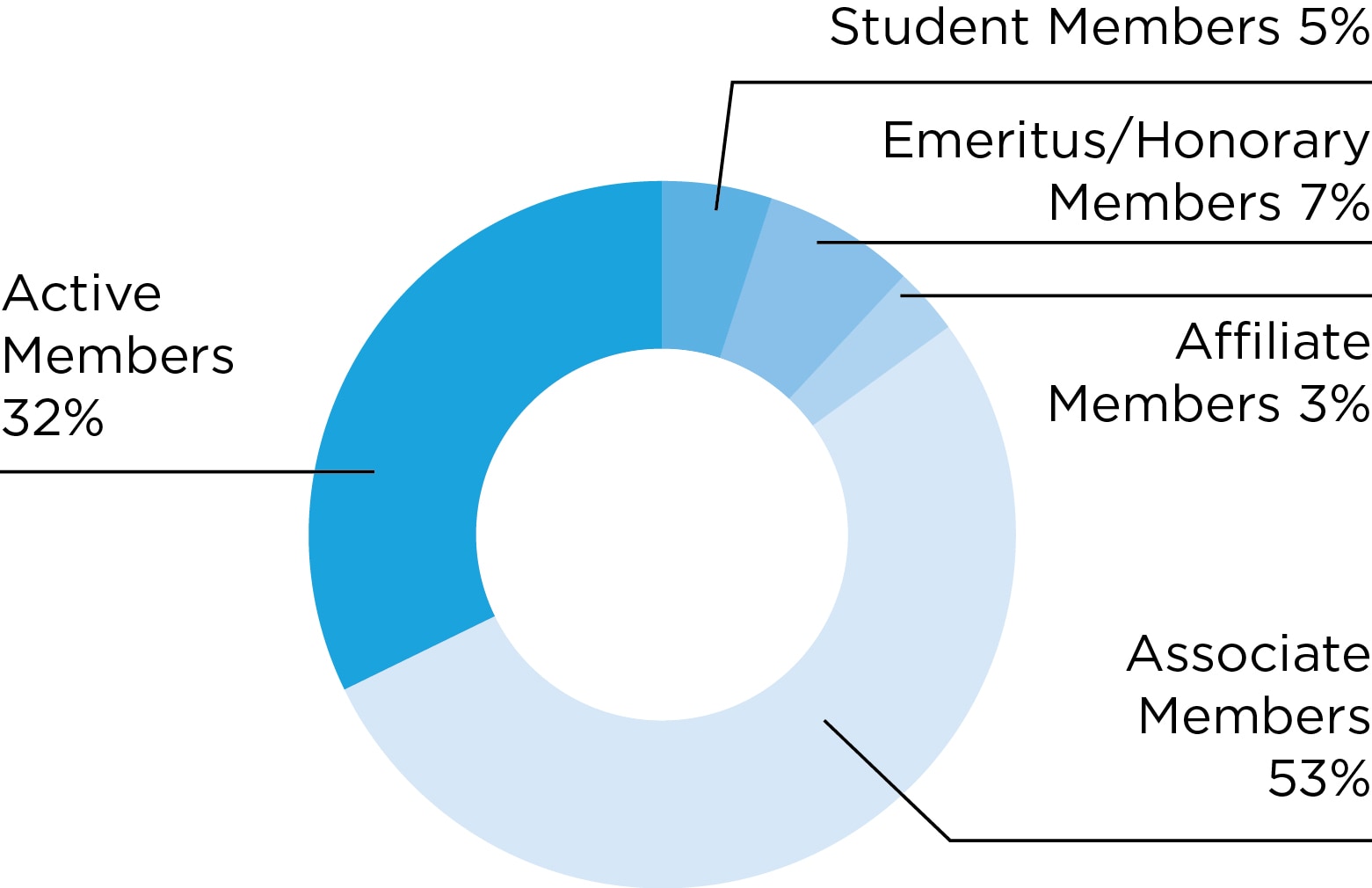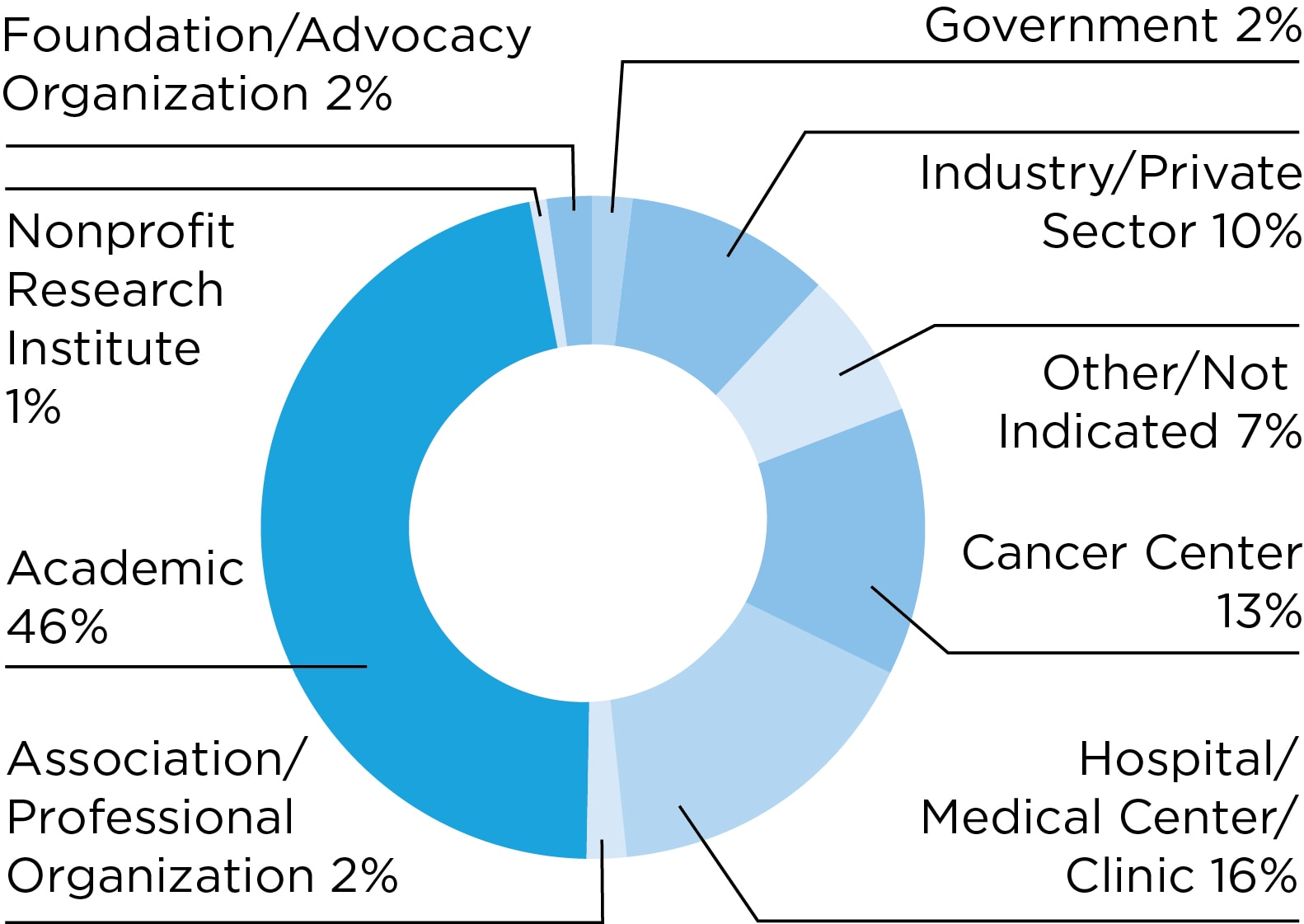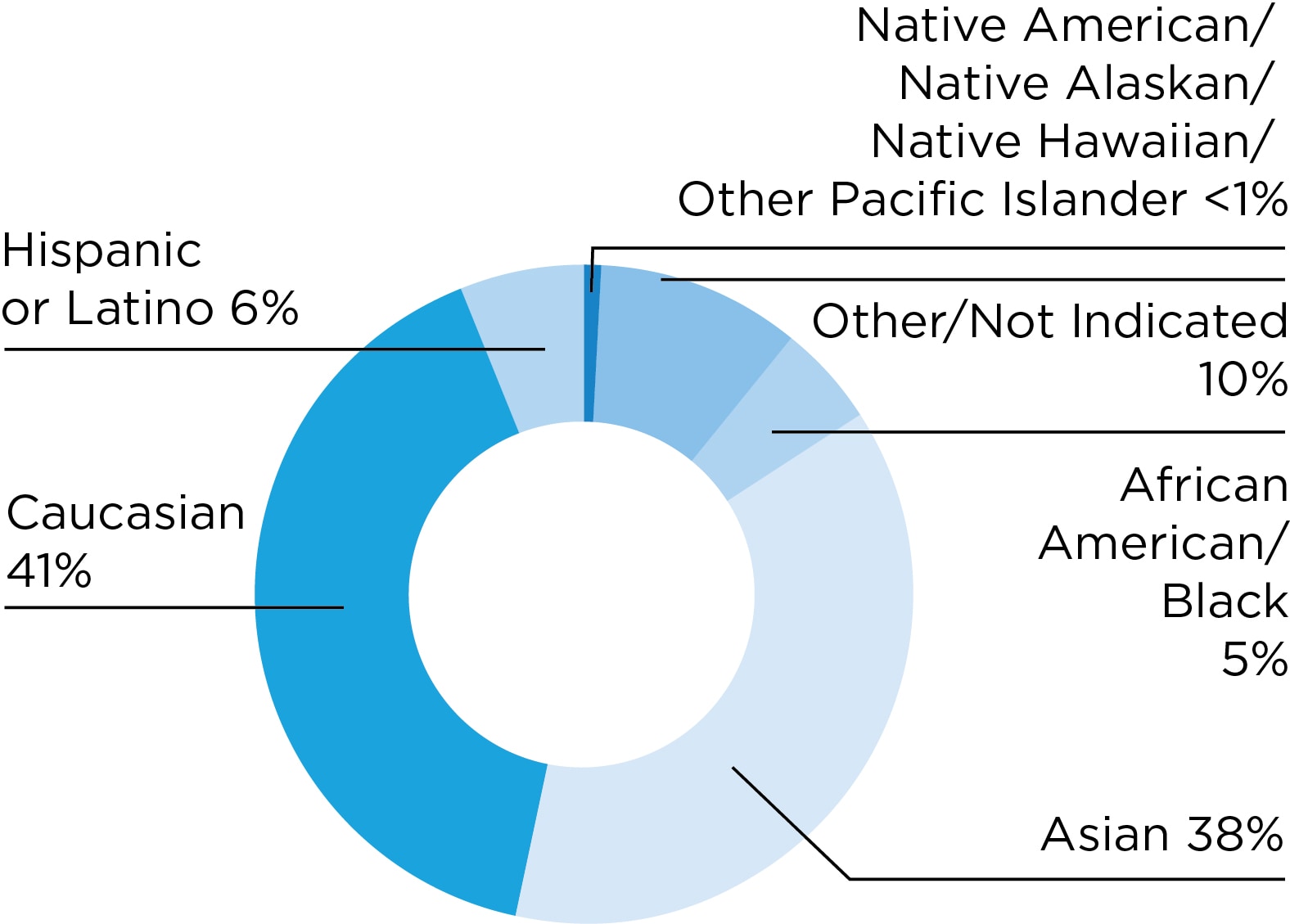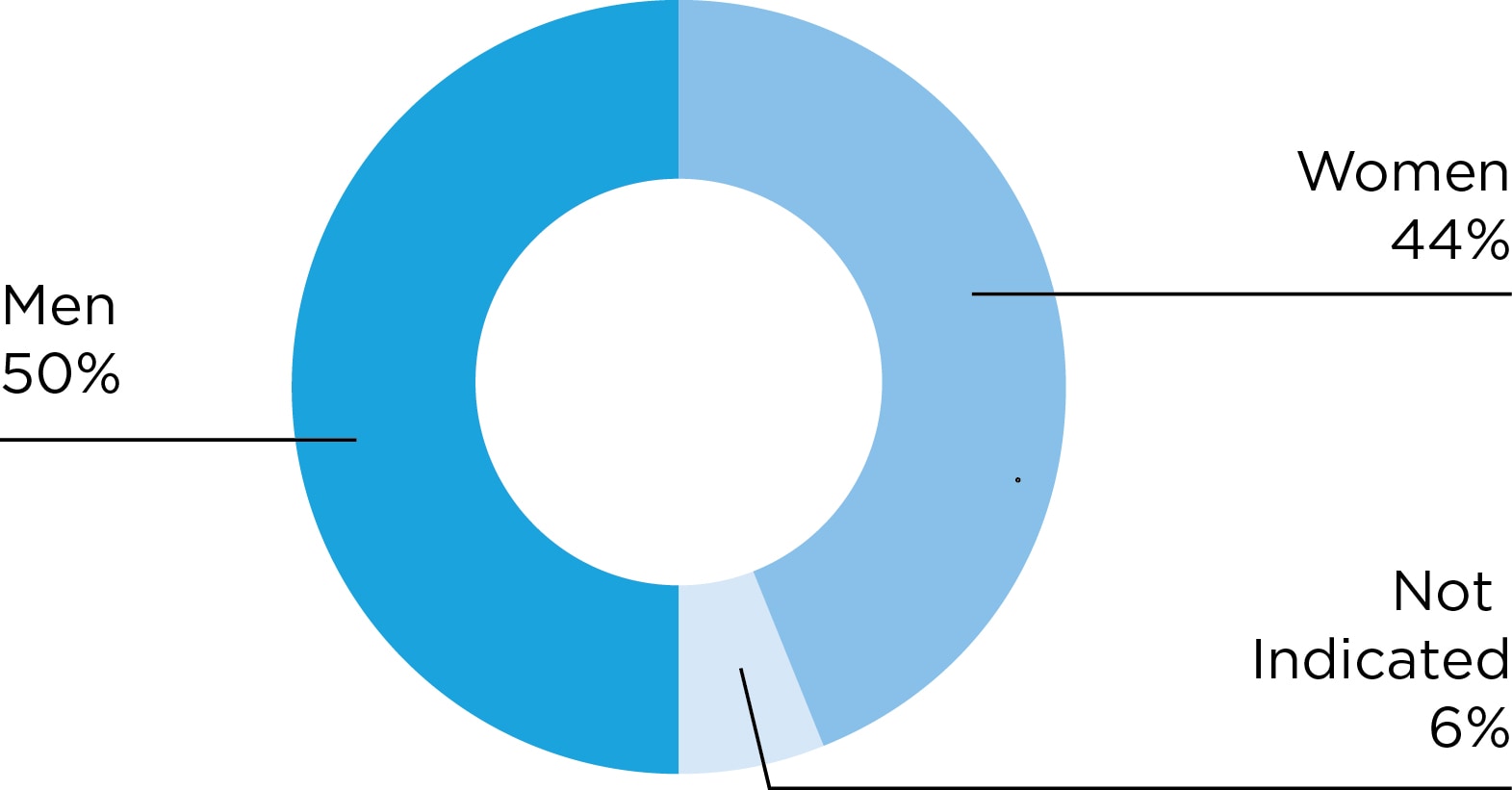Sections
The AACR’s mission to prevent and cure all cancers is driven by its members. AACR member scientists, clinicians, and other health care professionals around the world foster discovery and innovation across the entire spectrum of cancer science. AACR programs and initiatives forge connection and communication among these members, aligning their efforts and catalyzing progress for cancer patients.

Active Members: Established laboratory researchers, physician-scientists, clinicians, and population scientists
Associate Members: Young laboratory scientists and physicians-in-training (graduate students, medical students and residents, and clinical and postdoctoral fellows)
Student Members: Undergraduate and high school students
Emeritus Members: Active members who have reached the age of 70 years
Affiliate Members: Other health care professionals (practicing oncologists, nurses, laboratory technicians, nonscientific corporate professionals, and patient advocates)
55,675
Individuals are members of the AACR. The AACR is the first and largest cancer research organization dedicated to accelerating the conquest of cancer.
6,188
New members joined the AACR in 2023.
77
Nobel Laureates have been members of the AACR.
5,204
Individuals have been AACR members for more than 25 years.
236
Individuals have been AACR members for more than 50 years.
139
Countries are represented by AACR members.
All data as of December 31, 2023.



Minorities in Cancer Research (MICR) is a membership group within the AACR committed to preventing and curing cancer while meeting the professional needs and advancing the careers of minority scientists. The MICR Council acts as an advisory body to the AACR leadership on issues of concern to minority investigators, including the elimination of cancer health disparities.
Women in Cancer Research (WICR) is a membership group within the AACR committed to recognizing women’s scientific achievements and fostering their career development and advancement in cancer research. The WICR Council acts as an advisory body to the AACR leadership on issues of concern to women scientists.
The Associate Member Council (AMC) serves as the leadership body for AACR associate members, who consist of graduate students, medical students and residents, and clinical and postdoctoral fellows. The Council develops programs that address the particular needs of early-career scientists.